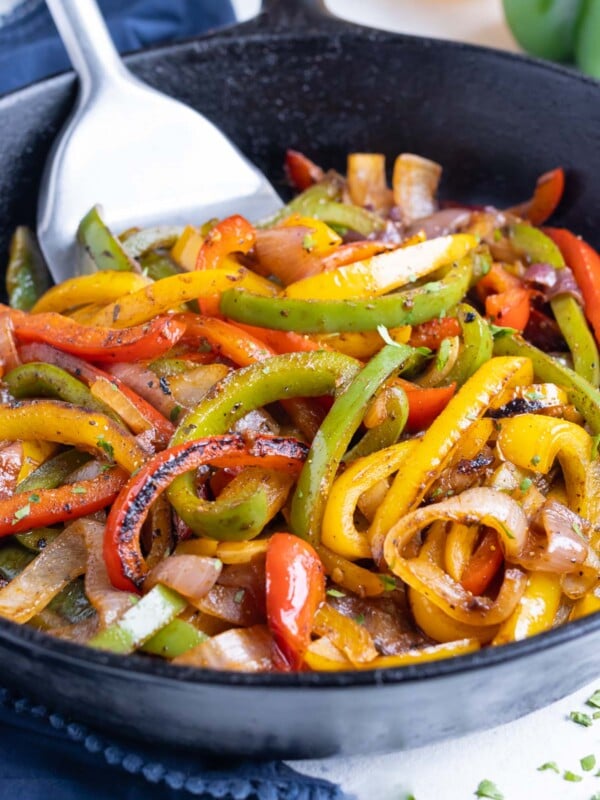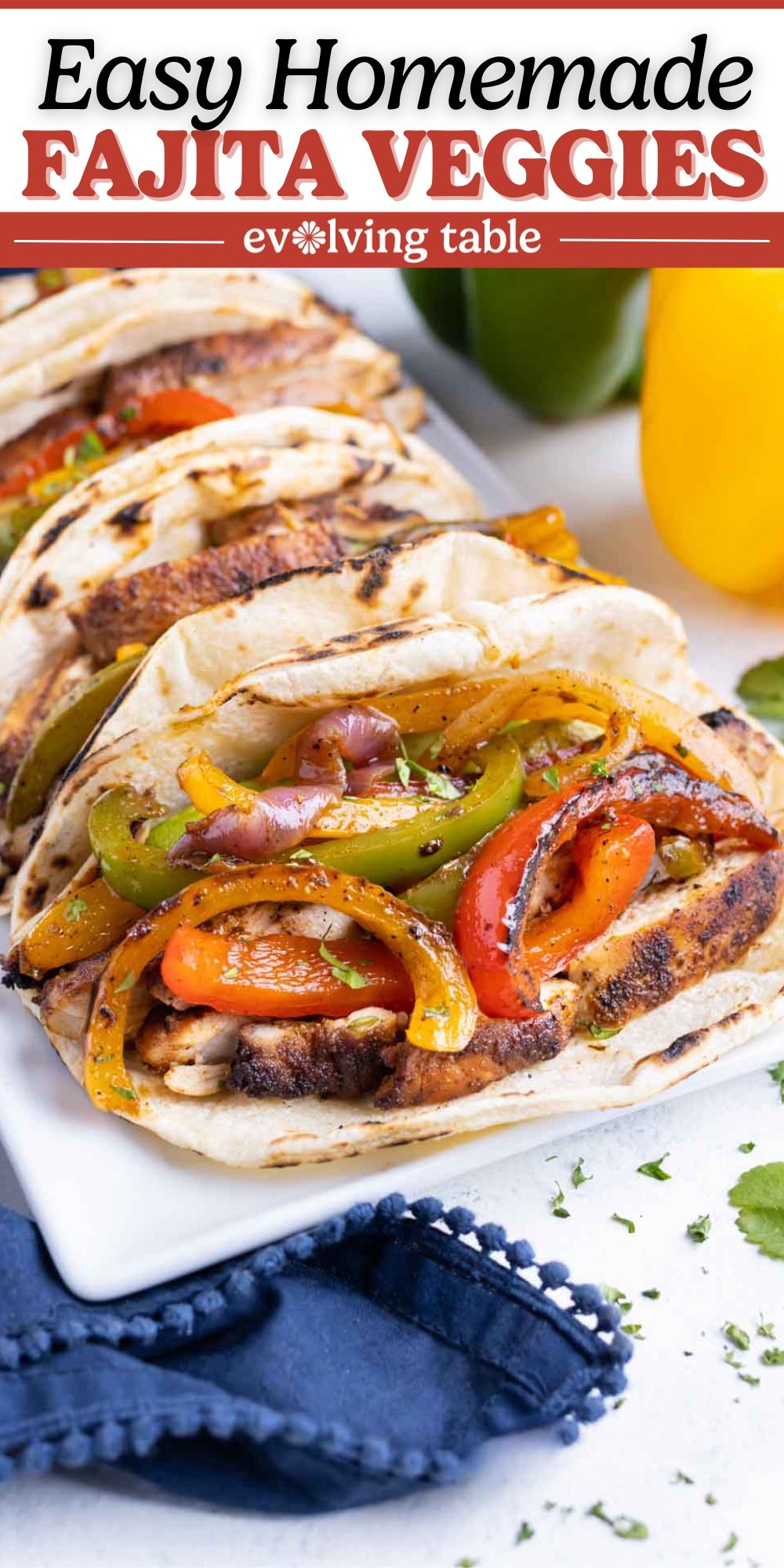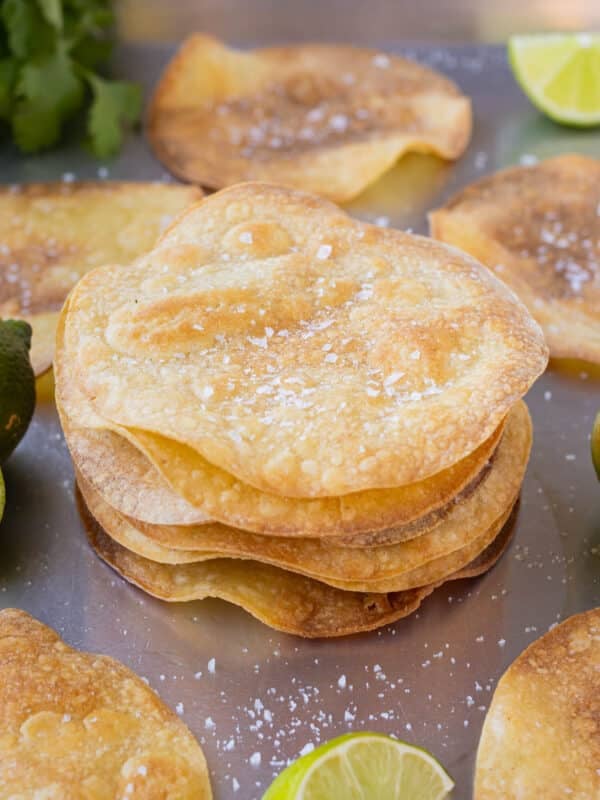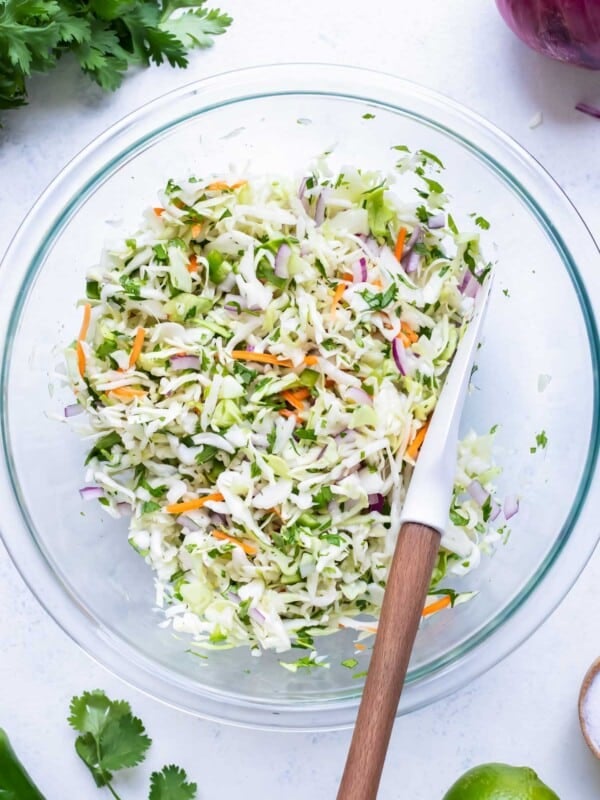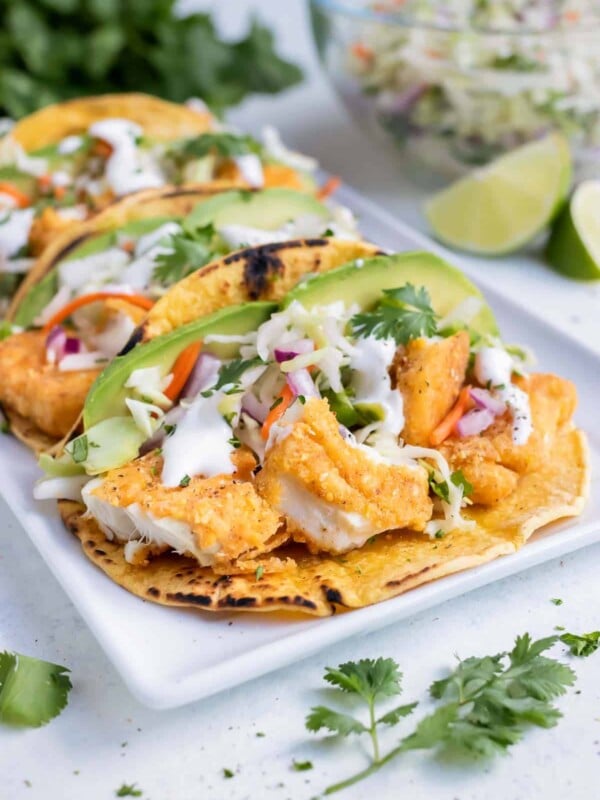Fajita veggies, from a Tex-Mex pro.

Anytime we have more than 5 or so friends over for dinner, Justin and I immediately turn to making these Flank Steak Fajitas with Cilantro Lime Rice!
While most believe the meat is what makes a fajita SO good, I would argue it’s actually all in the veggies.
After years of being on fajita veggie duty (Justin’s a master at the grill!), I’ve come up with a few sneaky tricks that make this recipe SO much better than the rest:
- A mix of bell peppers. Different colors have different levels of sweetness, so the mix is where it’s at!
- A cast iron skillet is key. If you really want to get that classic char like you’ll find at Chipotle or Qdoba, you’ve gotta’ cook them in a piping hot cast iron skillet!
- A sprinkle of seasoning. Now this is definitely not the norm, but if you want to give your fajita veggies an extra boost of flavor, a little bit of fajita seasoning or taco seasoning will do it!
Want to try other copycat Chipotle recipes? Give these Chipotle Burrito Bowl, Chipotle Corn Salsa recipe, Cilantro Lime Rice, and Chipotle Chicken recipes a go. And don’t miss these air fryer roasted red peppers!
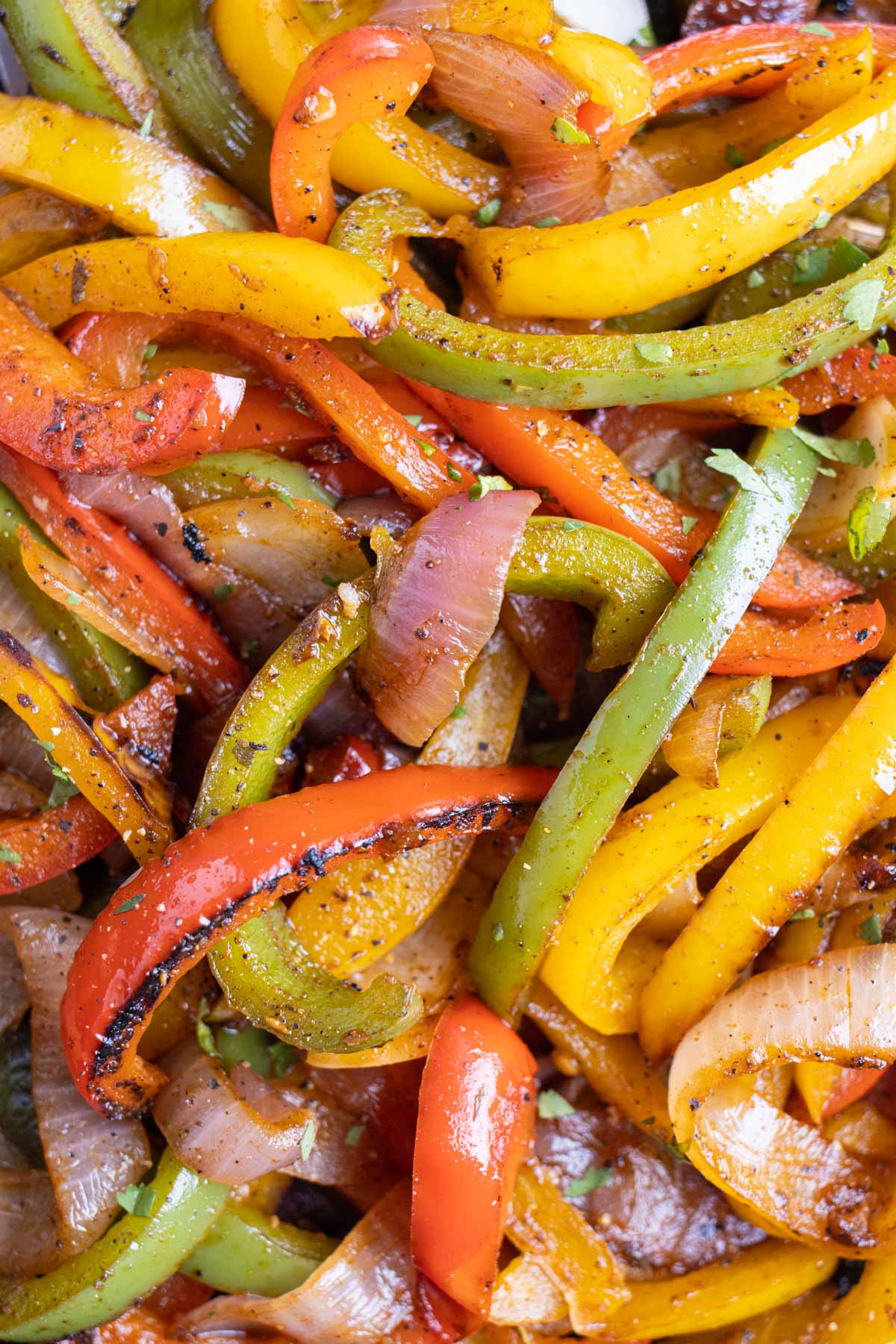
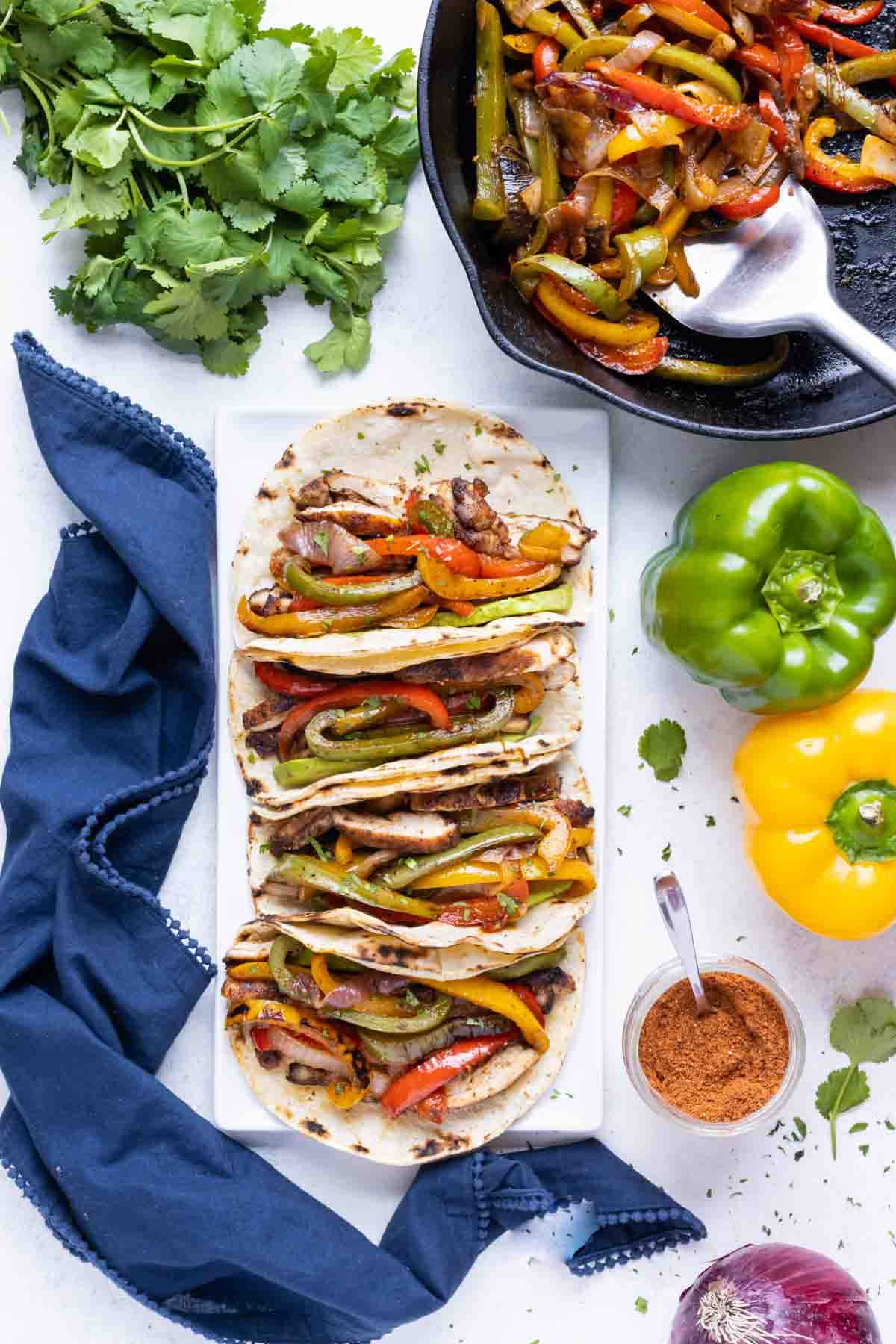
Ingredients and Substitutions
For the exact measurements and detailed instructions, please see the recipe card below.
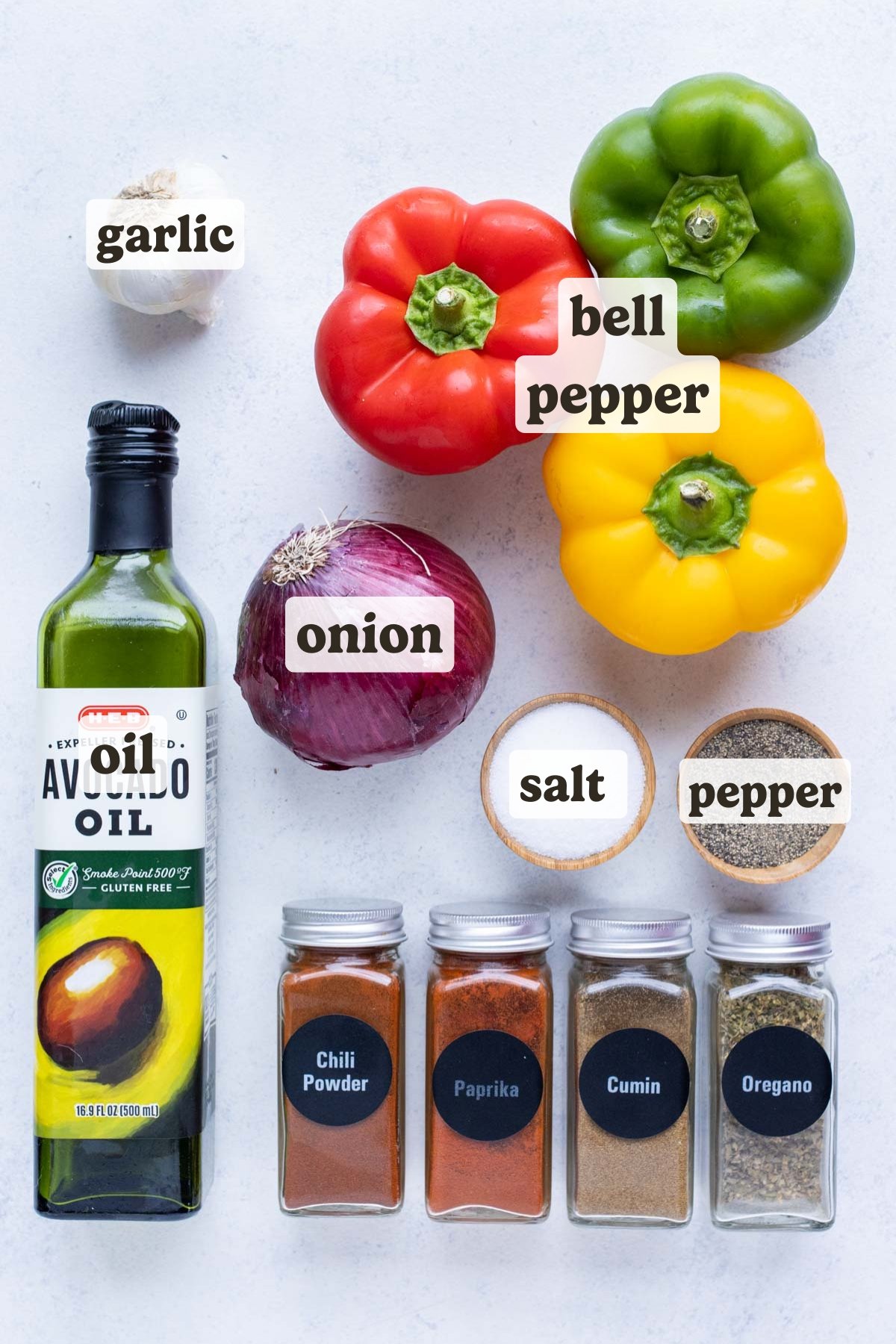
- Bell peppers. Using a mix of red, yellow, and green peppers creates a beautiful effect and gives a slightly more complex flavor. But you can go with all one color, if preferred.
- Onion. Choose a red onion for its strong, pungent flavor. However, you can sub a sweet or white onion.
- Oil. A neutral cooking oil with a high smoke point, such as avocado oil, is ideal. If it’s all that’s available, vegetable or olive oil will also do.
- Garlic. Fresh garlic is preferred, however for each clove, ⅛-teaspoon of garlic powder may be substituted.
- Fajita Seasoning. A homemade mix of spices typical in Mexican cuisine, including chili powder, paprika, cumin, oregano, salt, and pepper.
For more information on preparing these ingredients at home, see How to Cut an Onion and How to Mince Garlic.
Step-by-step Instructions
Please see the recipe card below for more detailed ingredient amounts.
Slice the peppers and onions.
A sharp chef’s knife will make cutting your veggies a breeze. You want to try to slice both the peppers and the onions into strips that are all roughly ¼-inch thick. Uniformity is key here so they’ll cook up more evenly!
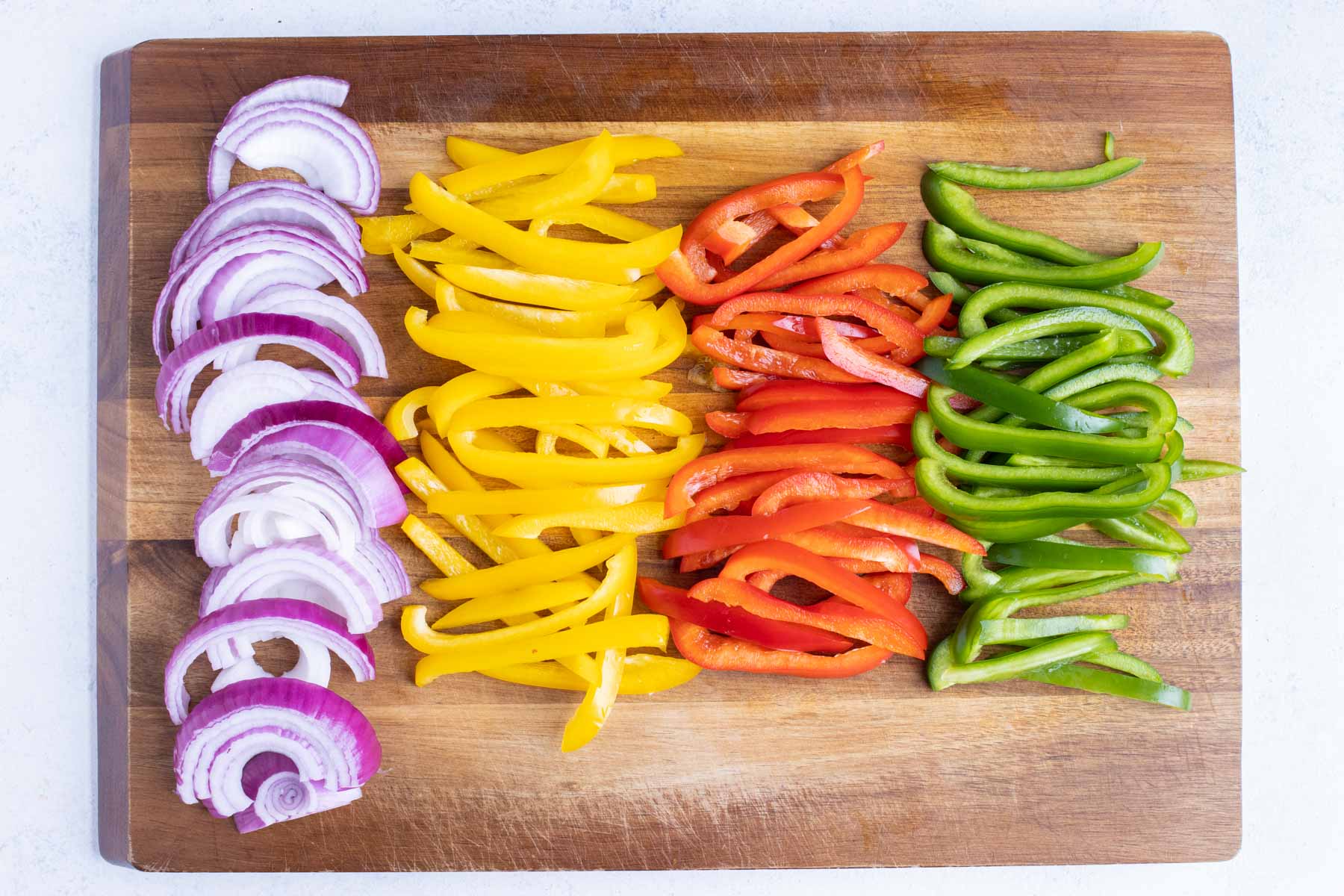
Cook in a cast-iron skillet.
Add oil to a large cast-iron skillet over medium-high heat and wait for it to sizzle!
Mix in the veggies and Fajita Seasoning. Cook 7-8 minutes, stirring occasionally. Towards the end of cooking, add the garlic and cook for 30 seconds more, or until fragrant.
Remove the skillet from the heat and give the veggies a good stir, scraping up any browned bits that might be clinging to the bottom of the pan. (This is where all the flavor lies!)
Pro Tip: If you let the veggies sit for a minute or two before mixing, they’ll got a lovely char!
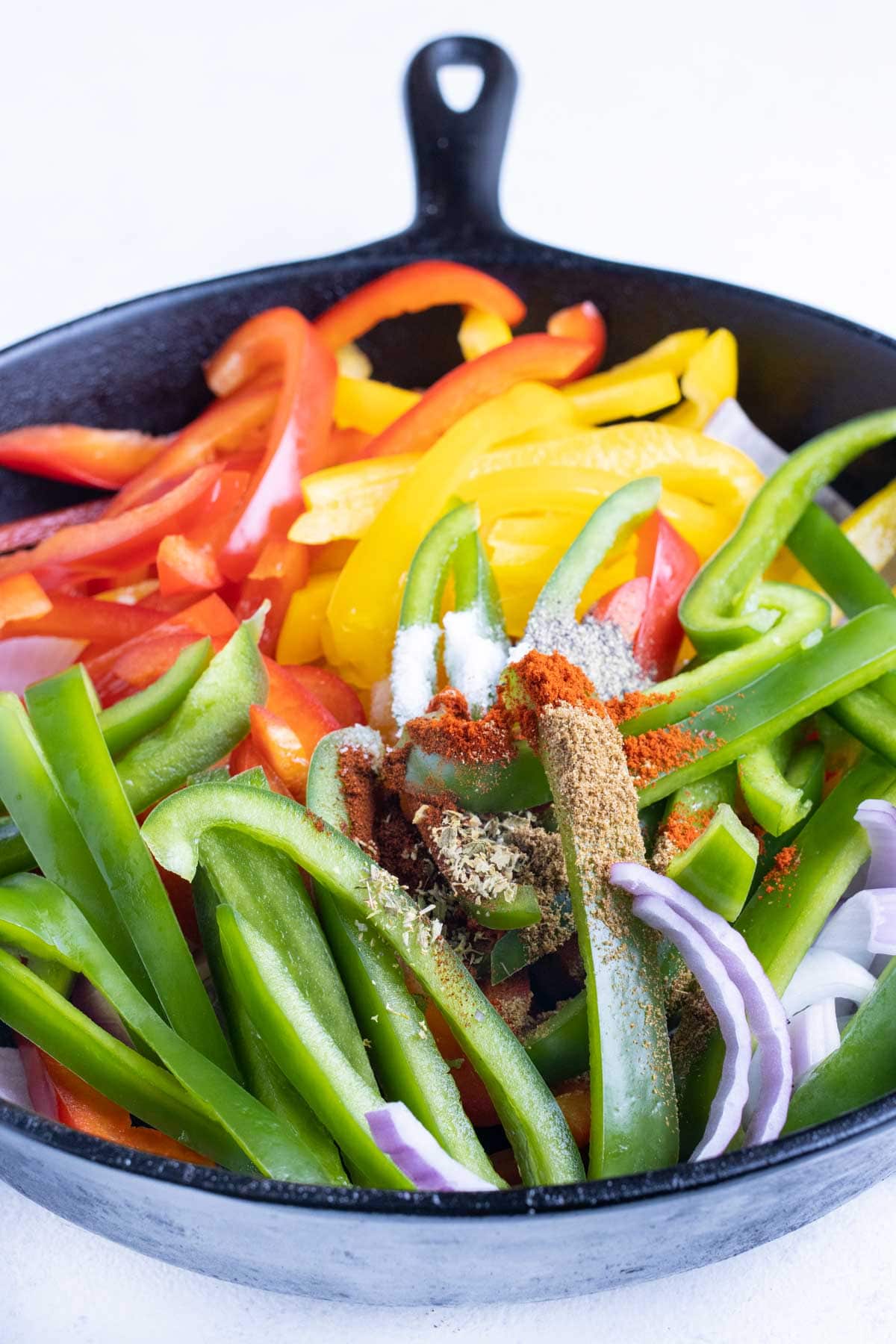
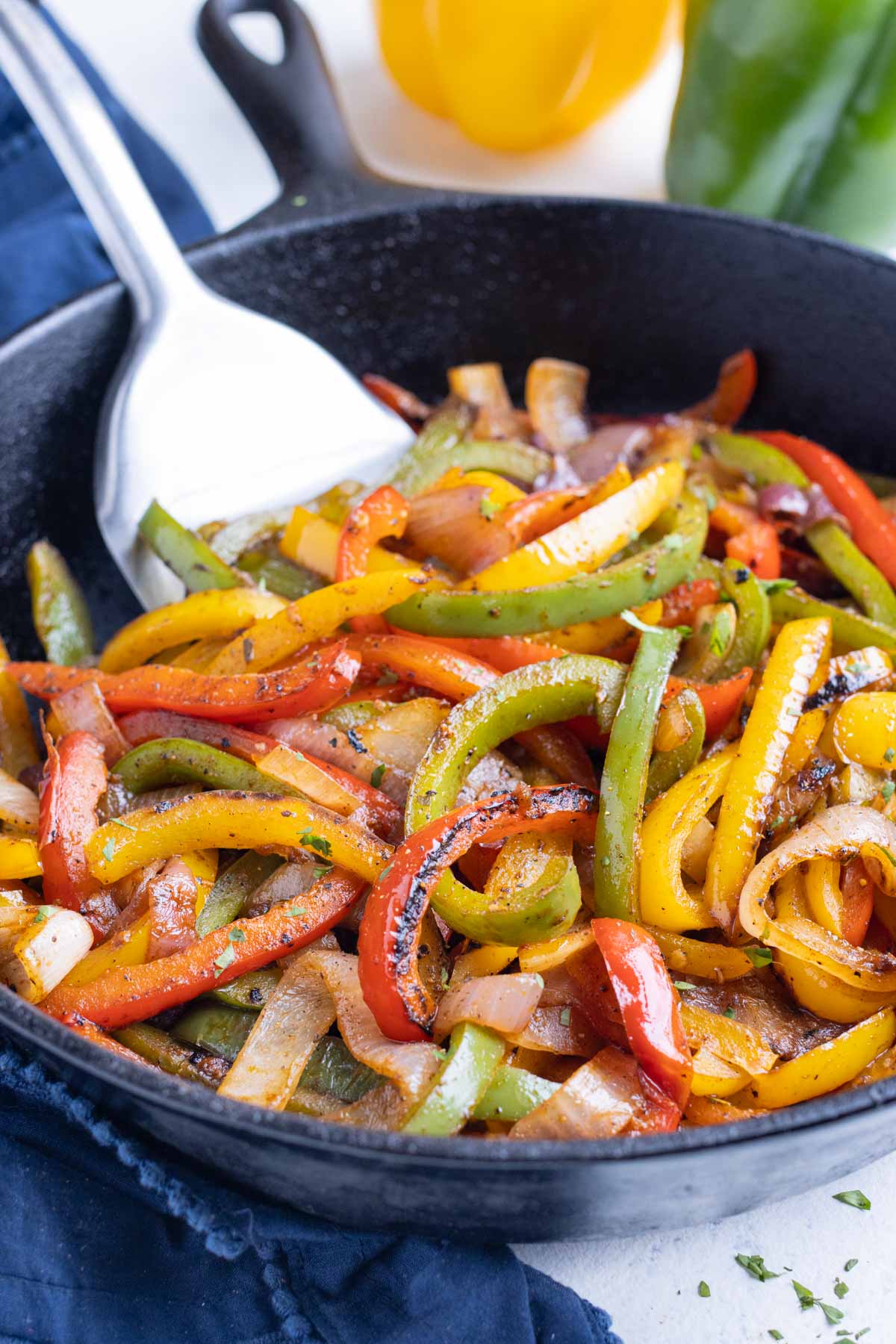
FAQs
When we’re craving a little heat, I like to mix in some very thinly sliced jalapeno peppers. (Mix in the membranes and seeds if you want even more heat!)
The peppers in fajitas can be substituted with any other preferred option such as zucchini, eggplant, or portobello mushrooms. Keep in mind that this may affect cooking times, which you should adjust accordingly.
You’re either not using a hot enough skillet, or it’s the type of skillet you’re using. A cast-iron skillet is the most likely to give you those gorgeous charred edges! Stainless steel will also work, but it will be almost impossible to achieve with non-stick skillets.
What to serve with fajita veggies?
These veggies taste amazing on their own, but here are some of our favorite main dishes to serve them with:
Load ’em up on tacos: These Flank Steak Fajitas and Tacos al Pastor would taste incredible with them!
Serve them with grains like this Cilantro Lime Rice, or Mexican Rice.
Or give other Mexican-inspired dishes some extra flavor and add to these Chipotle Chicken Burrito Bowls, Fiesta Lime Chicken, or these Sheet Pan Nachos!
Tap stars to rate!
Fajita Veggies Recipe (Chipotle Copycat)

email this recipe!
Ingredients
- 3 bell peppers red, yellow, and green
- 1 red onion
- 2 tablespoons avocado oil
- 2 garlic cloves finely minced
- ½ teaspoon chili powder
- ½ teaspoon paprika
- ½ teaspoon cumin
- ¼ teaspoon oregano
- 1 teaspoon salt to taste
- ¼ teaspoon pepper to taste
Instructions
- Thinly slice the bell peppers and onion.3 bell peppers, 1 red onion
- Heat the oil in a large cast iron skillet over medium-high heat for a few minutes. Once it's sizzling hot, add the peppers, onions, chili powder, paprika, cumin, oregano, salt, and pepper. Cook for 7-8 minutes, stirring occasionally. For more of a char, let the veggies sit for a minute or two before stirring. Pay close attention, however, because they can burn quickly!2 tablespoons avocado oil, ½ teaspoon chili powder, ½ teaspoon paprika, ½ teaspoon cumin, ¼ teaspoon oregano, 1 teaspoon salt, ¼ teaspoon pepper
- During the last minute of cooking, add the garlic to an open area of the pan and cook for 30 seconds, or until fragrant.2 garlic cloves
- Mix everything together and remove from the heat. Serve on tacos, in a burrito bowl, or enjoy on their own!
Tap stars to rate!
Video
Notes
- Spice Level: For an extra kick of heat, mix in some thinly sliced jalapenos or serrano peppers.
- Onion: A red onion will give you a more pungent bite, while a sweet or yellow will mellow the flavor out more.
- Gorgeous Char: Allowing the vegetables to sit for a minute or two before stirring caramelizes the natural sugars in them, enhancing their flavor, and giving them that char!
- Prepping Ahead: The vegetables can be sliced and stored in separate airtight containers in the fridge up to 3 days in advance.
- Storage: Cooked fajita veggies can be stored in an airtight container in the refrigerator for up to 5 days or frozen in a freezer-safe zip-top bag with all the air removed for up to 4 months.
Nutrition
Nutrition information is automatically calculated, so should only be used as an approximation.

